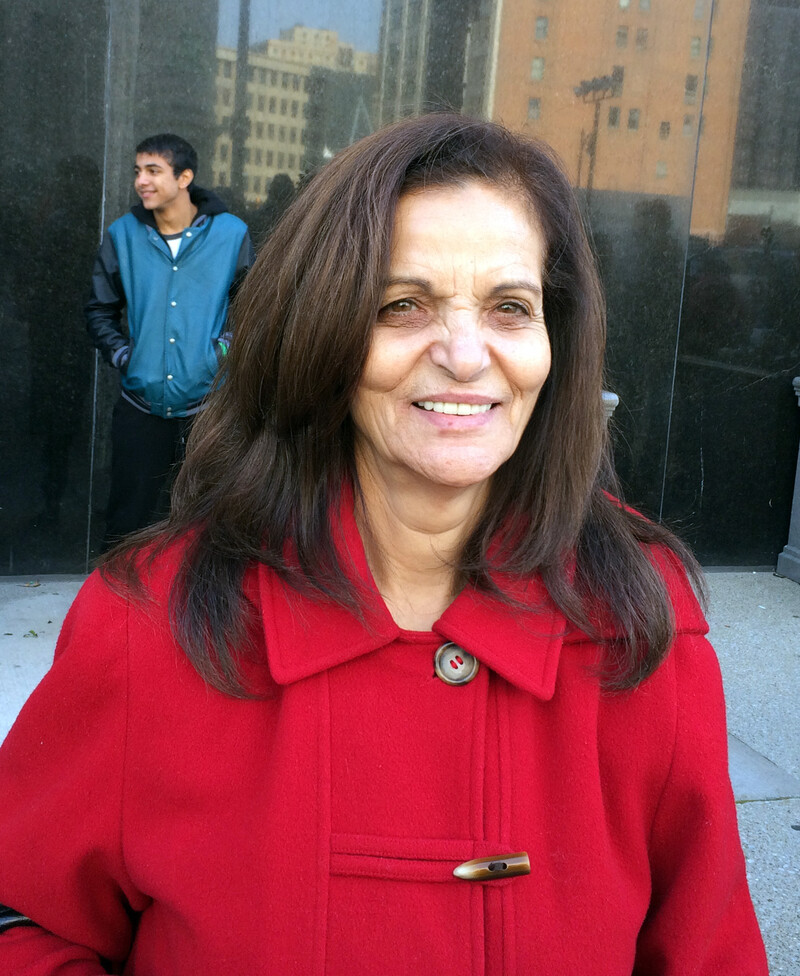Rights and Accountability 22 December 2016

Rasmea Odeh
Rasmea Odeh’s new trial, originally set to start next month, has been delayed. It will now begin in federal court in Detroit on 16 May 2017.
District Judge Gershwin Drain informed Odeh’s lead attorney Michael Deutsch and US prosecutor Jonathan Tukel of his decision on Wednesday.
Odeh’s defense requested the trial be delayed after prosecutors issued a new indictment against her earlier this month..
It adds two new allegations that were absent from the government’s previous case against the Chicago-based 69-year-old Palestinian American community leader: that Odeh was engaged in “terrorist activity” in 1969 when she was arrested by Israel and that she was associated with a “designated terrorist organization.”
The new charges came a week after Judge Drain granted Odeh a new trial that would allow her to present an expert witness to talk about the effects she experiences from post-traumatic stress disorder (PTSD) as a result of torture and rape she endured by Israeli interrogators.
The new charges appear to try to circumvent her PTSD defense. Deutsch says the government hopes the PTSD defense would not apply to these allegations, since they allegedly took place before she was tortured by Israeli interrogators.
Deutsch told The Electronic Intifada that he will be filing a motion to dismiss the new indictment in mid-February.
If Drain accepts the new charges, a portion of the trial will be dedicated to proving Odeh was involved with a “designated terrorist organization.”
In Odeh’s first trial, Drain prohibited the prosecution from using the word “terrorism,” on the grounds that it would prejudice the jury.






Comments
on the PFLP charge
Permalink tom hall replied on
The Popular Front for the Liberation of Palestine, to which Rasmea Odeh is alleged to have belonged, first appeared on the U.S. State Department's list of Foreign Terrorist Organizations on 10/08/1997. The period of Rasmea Odeh's illegal arrest, rape and torture at the hands of Israeli interrogators, her false confession and unjust imprisonment, occurred many years prior to the creation of that list. For whatever reason, the PFLP was not formally designated a terrorist organization during the time in question, at least not by the U.S. government. This charge should therefore be rejected by Judge Drain.
For that matter, the task of proving Rasmea's PFLP membership will fall to the Israeli secret services, a notoriously unreliable source. Their agents typically demand anonymity in American courts and withhold crucial evidence by invoking Israeli state secrecy regulations which ought to have no standing under U.S. law. The court system which convicted Rasmea Odeh- illegal courts under an illegal occupation- enjoys a conviction rate of nearly 100%. That in itself ought to qualify this entire case for immediate dismissal. Of course, it also ought to result in a cessation of all U.S. aid to that odious regime- an event grown even more unlikely by the accession of Donald J. Trump to the Presidency.
Nevertheless, it appears that Rasmea Odeh's lawyers have mapped out a coherent path of action, and hopefully justice will prevail. Godspeed, Rasmea.